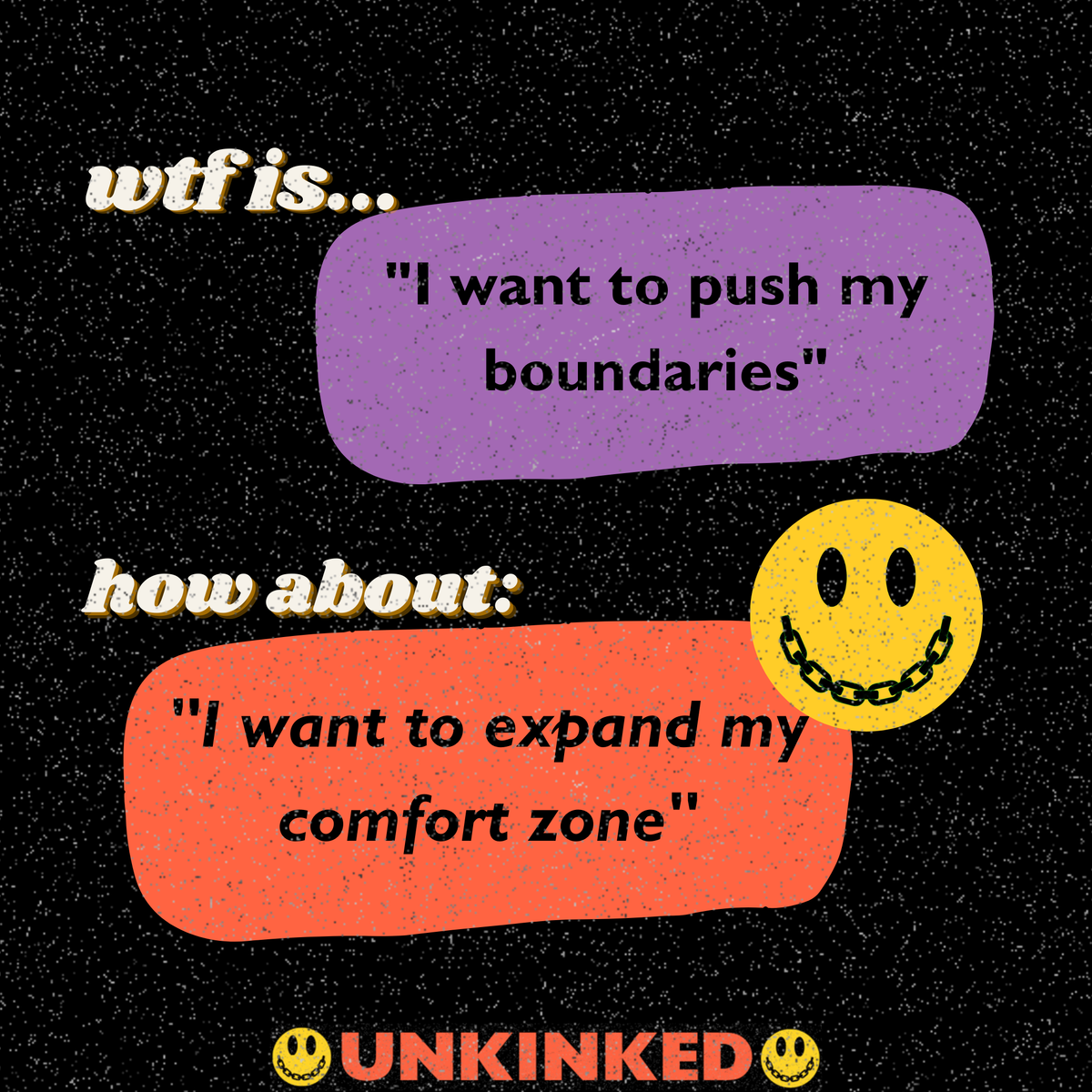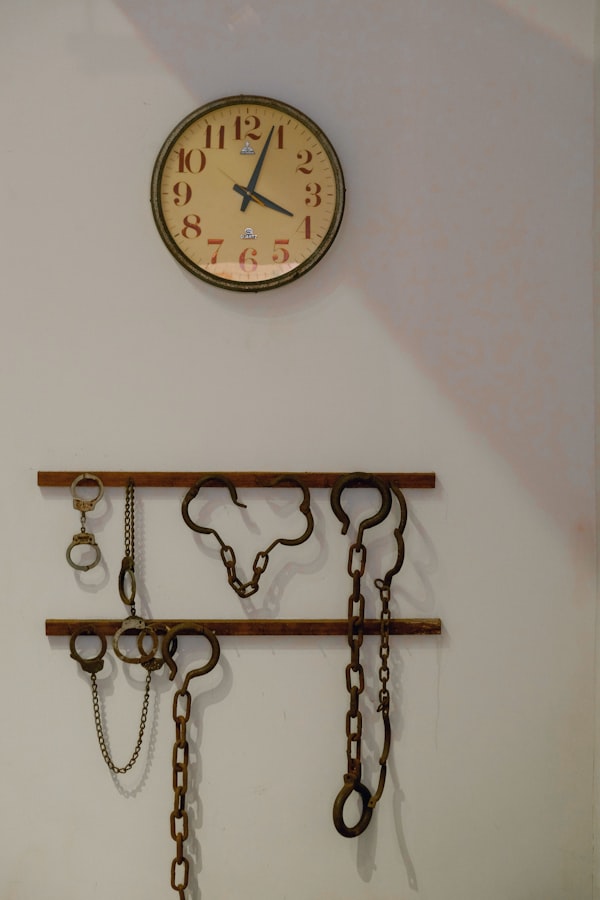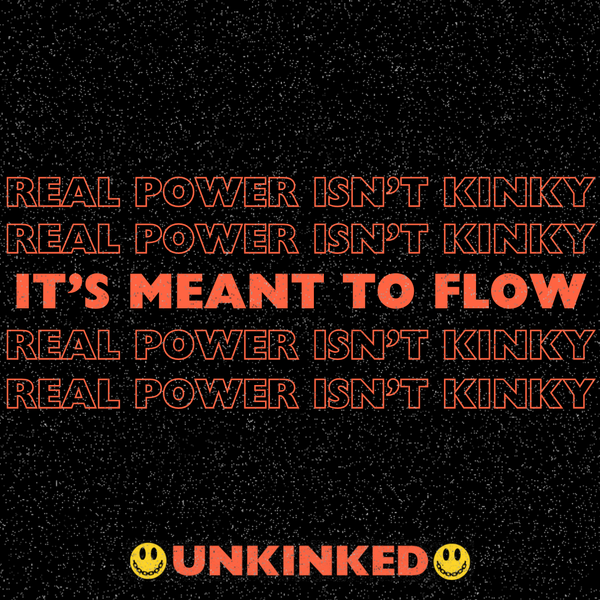Boundaries are not a limit to be pushed past
If we approach our edges with a forceful sense of "pushing through," we can end up priming ourselves to ignore messages from our body.

Boundaries are not a (hard, or soft) limit to be pushed past.
They are a gift to help maintain a connection.
Boundaries are how we protect ourselves. They are how we assert power and desire: Here is what I will tolerate. Here is what my body wants and how I will respond to what it doesn't want.
Growth and exploration can be uncomfortable because they move us out of our comfort zone. We are becoming more expansive and encountering unknown territory. Boundaries allow us to meet our edge of tolerance and then retract and ground in the present. In these bite-sized steps, we can integrate new experiences.
We gain confidence in exploring when we can listen to our bodies to recognize these edges. We gradually build up a personal toolkit of knowledge and strategies for this awareness. Over time we become fluent in noticing triggers and overwhelm. These are the sensations of our body that pop up to say "too much!"
If we approach our edges with a forceful sense of "pushing through," we can end up priming ourselves to ignore messages from our body. This can result in an experience of violation or retraumatization. When the body perceives a lack of safety it shuts down, and we can't heal or connect in this state.
Safety and consent in kink (and everywhere) will become easier to strive for as we unlearn models of dominance and force as power. Healing requires us to embrace models of consent that honor the importance of respecting our own boundaries.
Luckily for thrill-seekers, baked into this approach to boundaries is the knowledge that for many of us, asserting boundaries is in itself an edge.
There is momentary pleasure of pleasing someone else and avoiding conflict with an eager (if not entirely honest) "yes!"
But there is a lifetime of pleasure in trusting yourself enough to pause and really consider if your "no" is what's more necessary.





